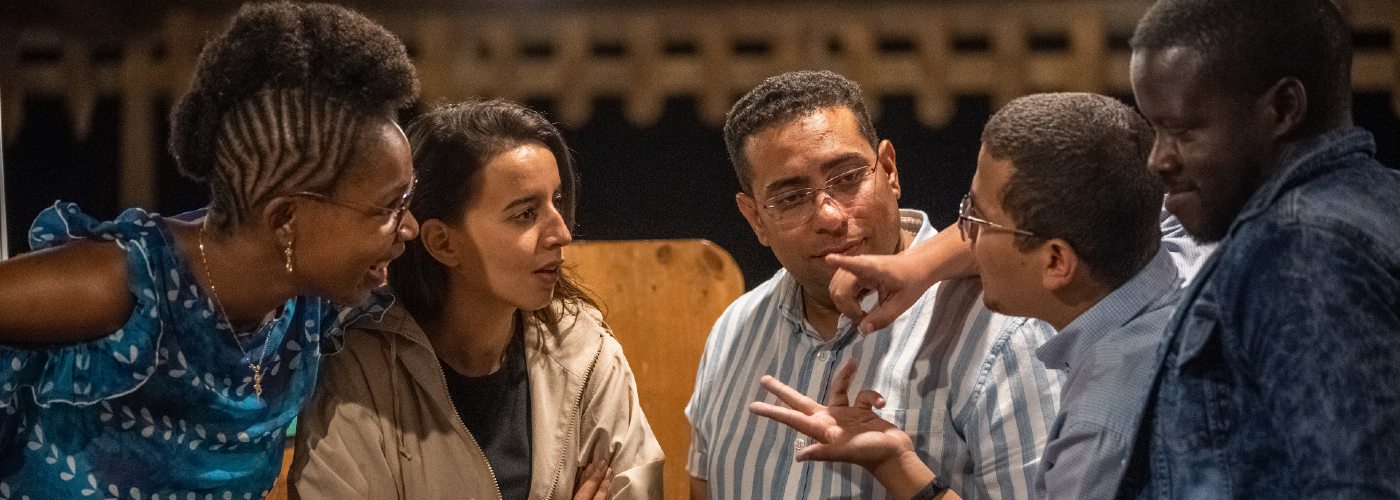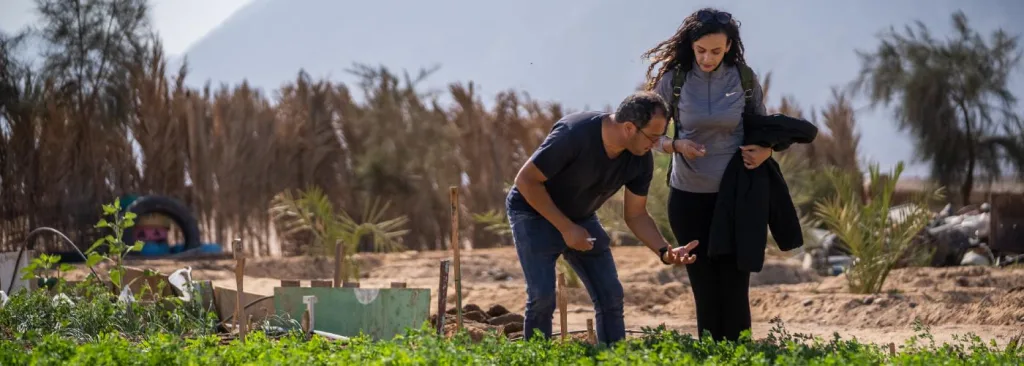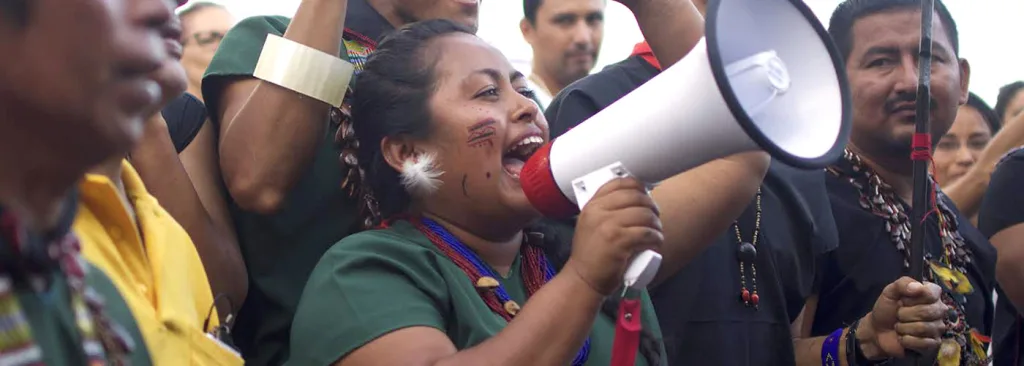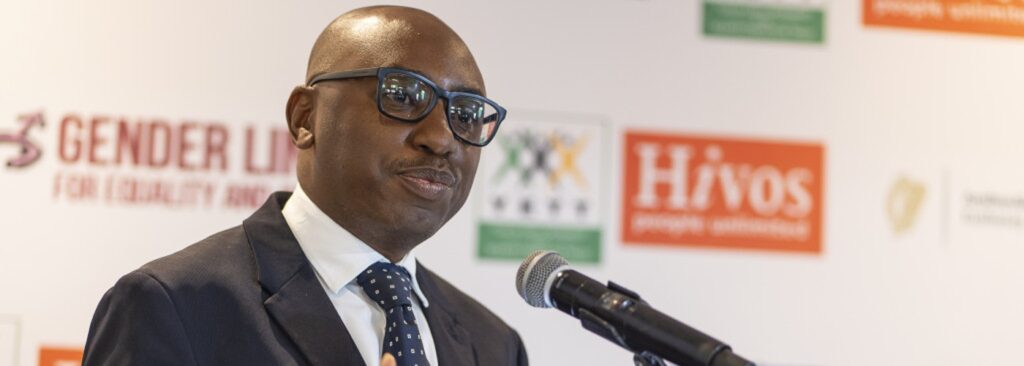The future of climate adaptation is local
December 1, 2022
By Steven Hawkes, Climate Justice Business Development Manager
What do smart water sensors, permaculture farming or solar pumping systems have to do with a just transition? What do the voices of young people and women have to do with climate adaptation?
This is what we explored at the post-COP27 “Futures Lab” in Nuweiba in the Egyptian Sinai. Hivos and the Challenge Fund for Youth Employment (CFYE) teamed up with New Silk Roads and ElRehla to host pioneering green entrepreneurs, climate activists, techies, investors, and civil society actors from the Middle East and North and East Africa. The objective was to explore the future of just green transitions and climate adaptation in their regions. Our conclusion? The future of climate adaptation must be inclusive and locally-led.
Local actors, and collaborations between them, are indispensable in the fight against climate change. Despite minimal contributions to global emissions, much of Africa and the Middle East is disproportionately impacted by climate change. Our meeting place in the southern Sinai is a case in point. Here, in an already challenging environment, communities face increasingly severe summer heatwaves, droughts, and rising soil salinity that decimates agricultural yields.
Climate finance for adaptation
Adaptation (adjusting to current and future impacts of climate change) was high on the agenda at COP27 down the road in Sharm El Sheik. But adaptation finance remains well below current and future needs. Of the $100bn a year rich countries promised they would deliver from 2020 – a promise still not fulfilled – only $20bn was promised for adaptation. Meanwhile, it is estimated that just $1 in every $10 of climate finance actually reaches the local level. And climate finance decision-making is all too often top-down and not engaged with the priorities, demands and expertise of rightsholders and local communities.
Despite these challenges, countless local actors are pioneering adaptation initiatives. They’re combining their extensive local knowledge with entrepreneurship, innovation and technology. They’re delivering effective adaptation solutions, improving resilience, and contributing to a vibrant and growing green economy sector. This in turn creates decent jobs, especially for young people and women. These local actions are also proven to be more effective, delivering higher and more equitable social, economic and environmental returns (WRI, 2020).
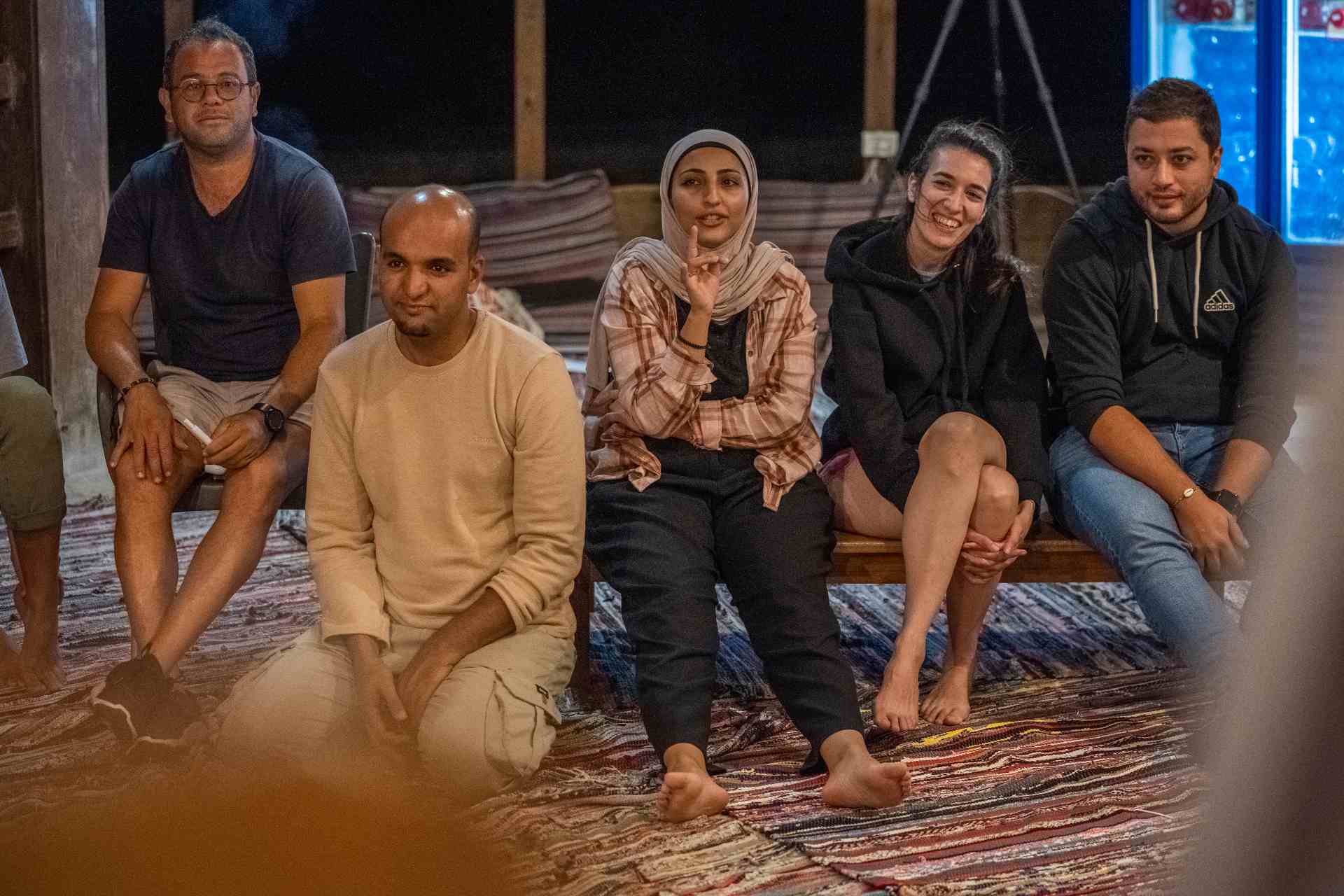
The Futures Lab journey
The participants included Hivos’ GreenWorks and Challenge Fund for a Just Transition partners and CFYE partners active in adaptation areas like water, energy, food, waste and resource use. The idea was to use a “futures thinking” approach to construct hopeful scenarios for localized climate adaptation.
The group started by unpacking our current understandings of climate adaptation and a just transition, learning from each other’s different perspectives. We jointly defined our priority areas as (i) inclusive decision-making on adaptation, (ii) the value of local knowledge, (iii) effective adaptation in food, agriculture and land use, and (iv) viable, inclusive business models for climate adaptation. Then in smaller groups, participants “traveled” to the future. We explored possible scenarios and developed alternative outcomes for local climate adaptation, including how to communicate these to a wider audience.
We need to think local to impact global. Culture and traditions differ but nature, resource use and climate change are real issues everywhere. – Hana Ayadi Ep Bitri
One of the participants is Raouia Bouchriha, operations manager at Comporoll, a Tunisian start-up that develops solutions for food waste and waste valorization. For her, the Futures Lab was an opportunity to share knowledge with other people working on climate change in the region and find new strategies to work closely with them.“Our mission is to change cultural and individual views on local adaptation, starting with Tunisian ecological habits. Above all, we need to persevere so that one day, as a result of our resilience and collective action, people who resist change will understand why it is so necessary,” she told me.
The hands-on component of the lab was an inspiring field trip to the Habiba Community regenerative farm and learning center, plus a trip to the mountains with local guides to see how Sinai communities have survived in this challenging environment for generations. This provided a valuable launchpad for participants to start “backcasting” – working backwards from the future to identify the steps needed to work towards their future visions, helping to identify the transformational processes behind future outcomes. A key part of this is to identify each of our roles in the present in bringing about the desired futures. Especially possible collective action and peer learning, for example between Tunisian water entrepreneurs, Algerian resource innovators and Egyptian artists, or Kenyan waste start-ups, Ugandan circular economy pioneers and Palestinian incubation hubs.
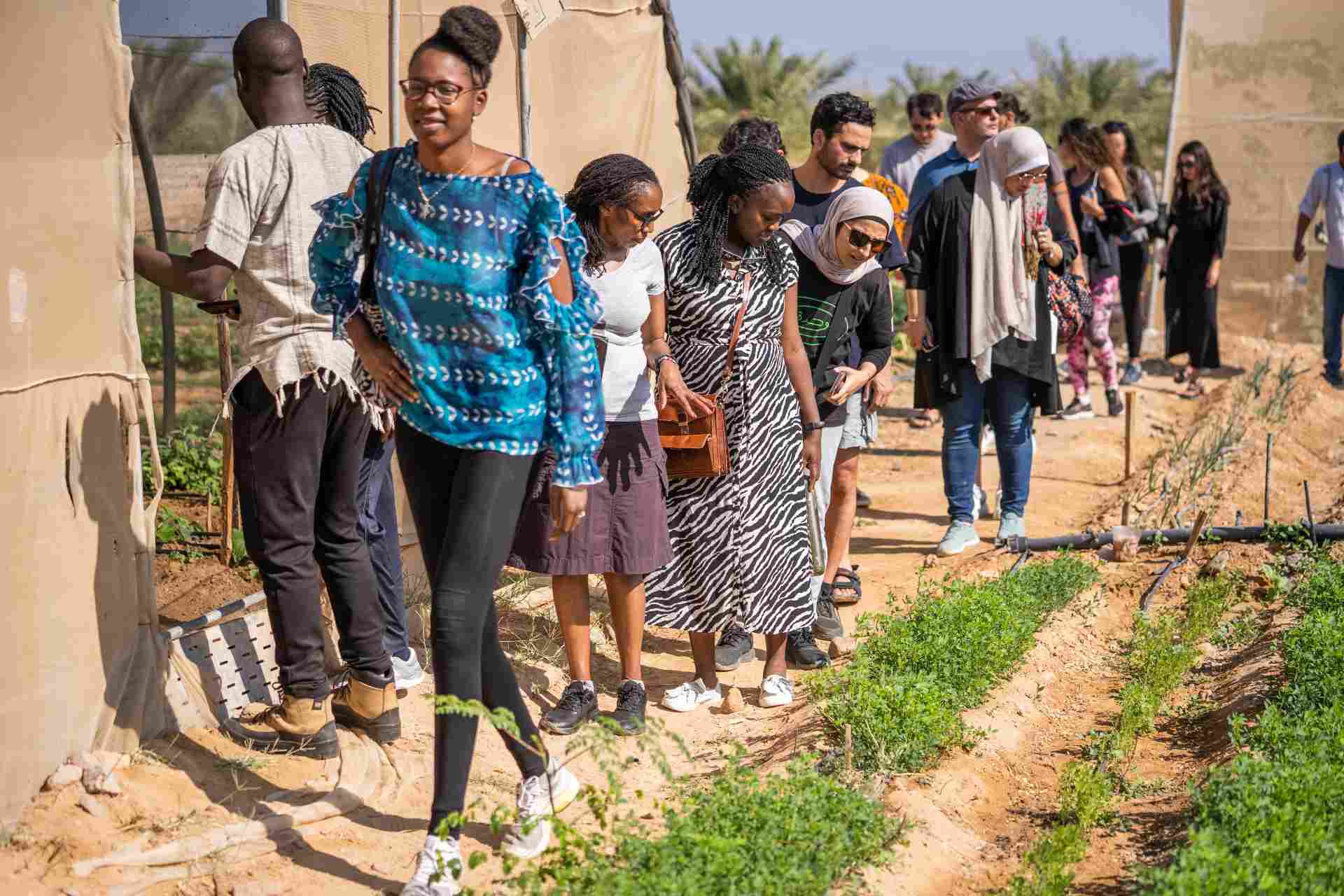
What happens next?
Participants’ future visions on the four priority areas will be further developed and then published and shared digitally, in a creative, accessible way. These will form the basis for new collaborations and shared agendas for future programming and advocacy to further spur the push towards locally-led adaptation.
“We need to think local to impact global. Culture and traditions differ but nature, resource use and climate change are real issues everywhere. I appreciated the complementary initiatives coming together from different cultures and perspectives, discussing the future in the middle of a harsh desert environment, and then ultimately going back to the present looking to act more and more, convinced that local initiatives are key to a better future” – Hana Ayadi Ep Bitri, L’Heredium Tunisia (an agro-ecological mini farm and creative leisure center)
Climate justice and locally-led adaptation
Climate justice means putting rightsholders and communities at the center of climate action, especially those disproportionately impacted by the climate crisis. It means financing locally-led adaptation efforts like those of our participants, who understand the local context, deliver results, and create decent local jobs at the same time. And it means ensuring that climate policies, practices and investments at all levels listen to the voices of rightsholders who must own, participate in and benefit from climate action.
A number of organizations, including Hivos, have endorsed the Principles for Locally-Led Adaptation. But following COP27, it is clear that far more is needed to deliver on this. Adaptation finance lags significantly behind, and much more must be made accessible for local actors. Hivos’ recent briefing paper shows ways for international donors and funds, as well as for intermediaries, to increase the effective flow of financial resources to the local level. It also examines existing mechanisms that could better channel resources to these kinds of solutions. These examples, along with the experiences of our Futures Lab innovators, and other initiatives like the Local Adaptation Champions, show that the future of climate adaptation can indeed be inclusive and locally-led. Now we need decision-makers to deliver.
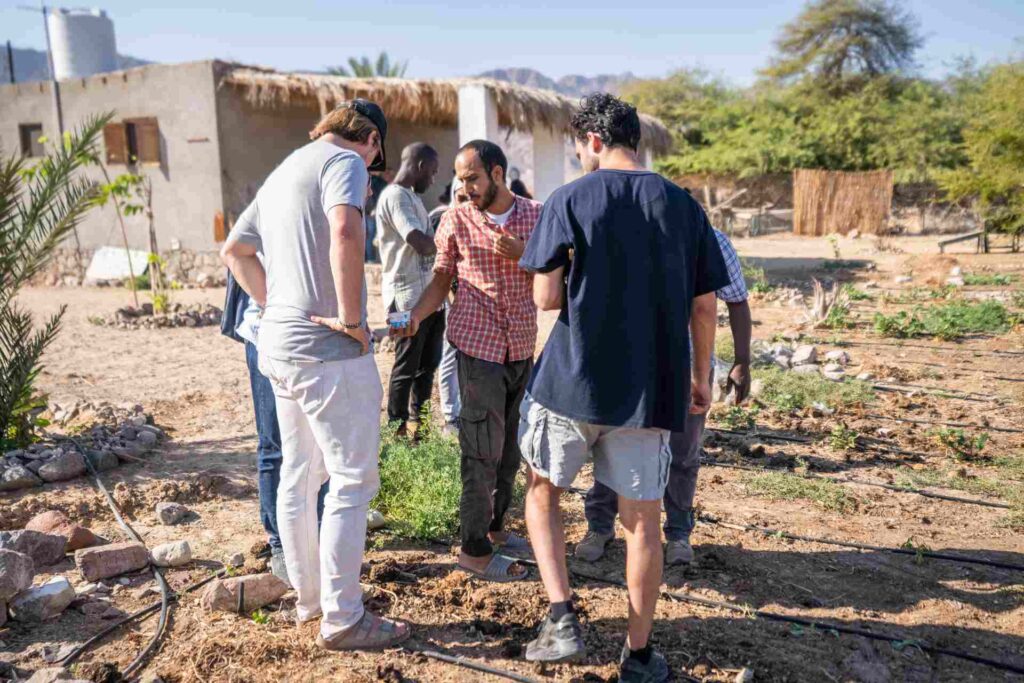


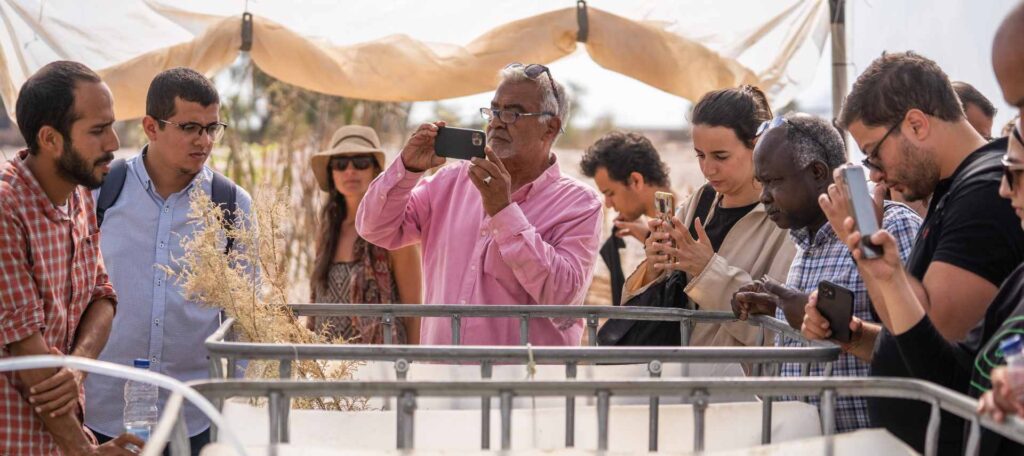
About the organizers
“Futures Lab in Sinai: What If Climate Adaptation Were Local?” was made possible by Hivos’ GreenWorks Alliance, with support from the Challenge Fund for Youth Employment (CFYE) and with funding from the Dutch Ministry of Foreign Affairs. New Silk Roads and ElRehla are the organizing partners.
The GreenWorks program, implemented by an alliance led by Hivos, contributes to climate change mitigation and adaptation by creating sustainable business and job opportunities in North Africa’s green economies.
The CFYE aims to create a prosperous future for 200,000 young women and men by supporting youth employment initiatives, in partnership with the private sector, in the Middle East, North Africa, the Sahel, West Africa, and the Horn of Africa. The CFYE is managed by Palladium, VSO Nederland, and Randstad.
New Silk Roads offers a range of futures thinking programs focused on collectively imagining preferred futures and producing bold, innovative future scenarios.
ElRehla’s mission is to build collaborative communities with strong social capital towards social and economic growth. Through an array of unconventional interventions (social labs and retreats, events, meetups, etc.), ElRehla (“the journey” in Arabic) works within different industries and sectors to innovate, generate shared understandings, build trust and reciprocity, induce change and reformation, define challenges and solutions, develop policy recommendations, underpin collaboration opportunities and collective action for mutual growth.

